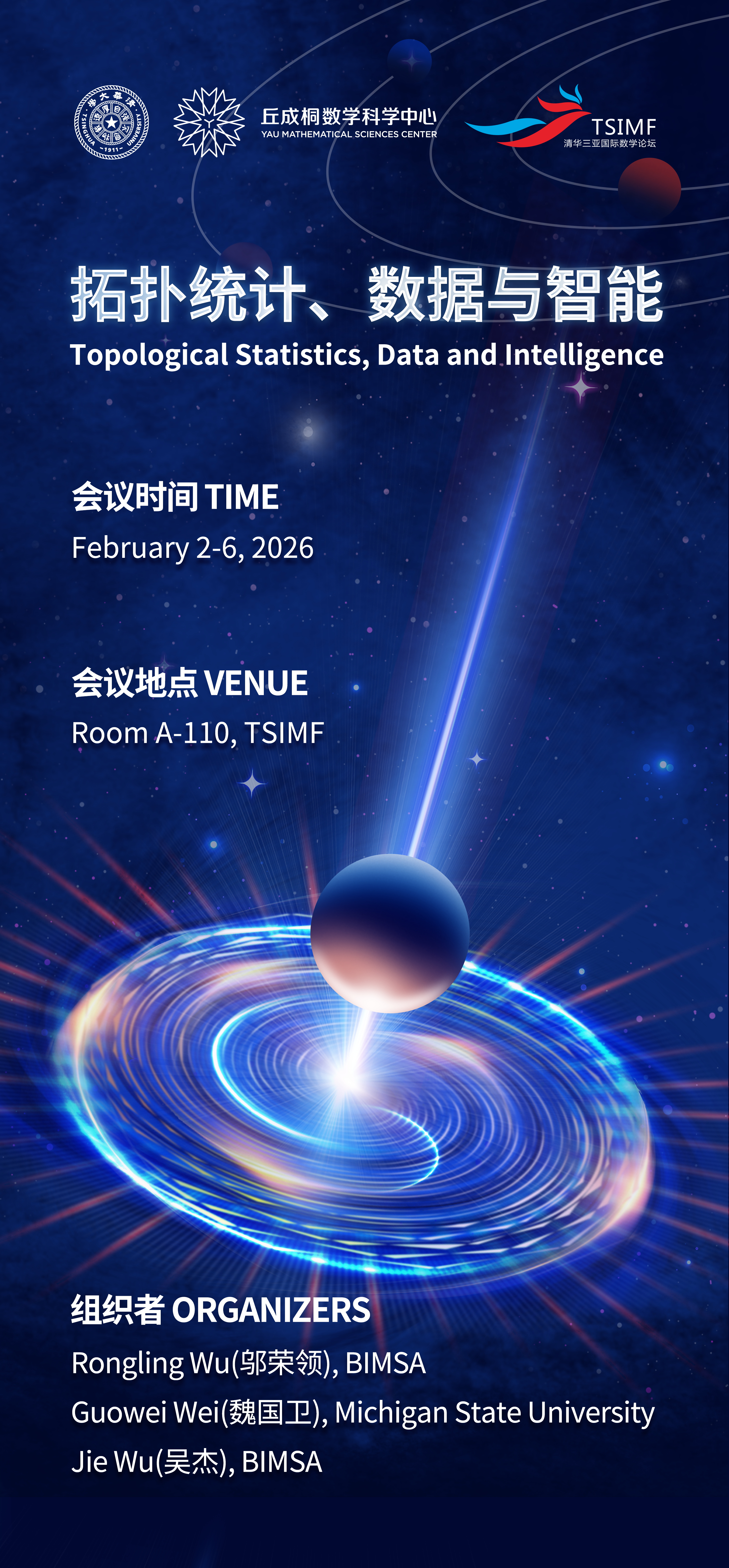会议摘要(Abstract)
Data analysis has exceptionally broad applications in scientific and engineering fields. Topological computational analysis has become a critical analytical tool. As an emerging branch of algebraic topology, persistent homology enables the integration of geometric features into topological invariants, bridging the gap between traditional topology and geometry. This theoretical breakthrough has given rise to a new paradigm in topological statistics, establishing rigorous mathematical foundations for feature extraction in high-dimensional complex systems. The research group of Beijing Municipal Key Laboratory of Topological Statistical Theory and Applications in Complex Systems has achieved groundbreaking progress in this domain. At this conference, students and researchers from this lab will present their accomplishments and engage in related discussions, marking a pivotal transition of topological feature engineering from theoretical modeling to industrial implementation in biomedicine.
Topological statistics, as an emerging field, demonstrates immense potential. Computational topology, particularly topological deep learning, promises revolutionary methodologies for scientific research. For instance, persistent homology has achieved remarkable success in extracting and simplifying macromolecular structural complexity and advancing drug discovery. Topological characterization provides an exceptional framework for machine learning on large-scale complex datasets and images. In computational science, algebraic topology has also been applied to concurrent computing, distributed computing, sequential computing, and network analysis.
In summary, computational topology has demonstrated significant value across diverse fields including physics, chemistry, biology, materials science, fluid dynamics, computer graphics, control theory, geometric design, shape analysis, and computational science. These successes have substantially propelled advancements in related mathematical disciplines, such as computational geometry, differential geometry, spectral geometry, geometric topology, geometric algebra, combinatorics, partial differential equations, optimization theory, inverse problems, and statistics.
The upcoming seminar on Data Analytics and Topology will bring together researchers from mathematics, physics, chemistry, biology, and computational science to explore new methods for connecting different disciplines and to promote the application of topology in both mathematics and various applied fields.
The primary goals of the proposed seminar are as follows:
.To promote the development of mathematical analysis and topological tools that can effectively utilize current computational capabilities to advance our understanding of the complexities of chemical, biological, and computational systems.
.To inspire a flow of information from "experiment to mathematics," similar to how quantum physics in the last century contributed to the establishment of heuristic new mathematics.
.To foster new connections, interactions, and collaborations between mathematicians and data scientists.
.To provide a platform for exchanging ideas and sharing topological results related to data science and computational science research.
.To introduce graduate students, postdoctoral researchers, and junior faculty members to this field and related disciplines, helping to train the next generation of researchers in computational topology.
.To enhance the participation of women, underrepresented minorities, and individuals with disabilities in research related to computational topology and its applications.
举办意义(Description of the aim)
A significant challenge in computational topology and applied research today lies in the mutual knowledge gaps between disciplines: mathematicians often lack expertise in data science and computational methodologies, while data and computer scientists face difficulties in adopting cutting-edge mathematical tools and topological techniques. The proposed workshop is designed to bridge these divides, fostering interdisciplinary collaboration to address shared research challenges. Concurrently, the Beijing Municipal Key Laboratory of Topological Statistical Theory and Applications in Complex Systems will utilize this conference to strengthen its integrated model for translating theoretical insights into practical applications. Through initiatives such as academic exchanges, open-data platforms, and joint research programs, the laboratory aims to embed itself within the global complex systems research community. By accelerating the industrial deployment of topological methods in biomedicine and advanced materials, it seeks to pioneer a transformative framework that unites mathematical rigor with computational innovation for complex systems analysis.

Rongling Wu, BIMSA
Guowei Wei, Michigan State University
Jie Wu, BIMSA